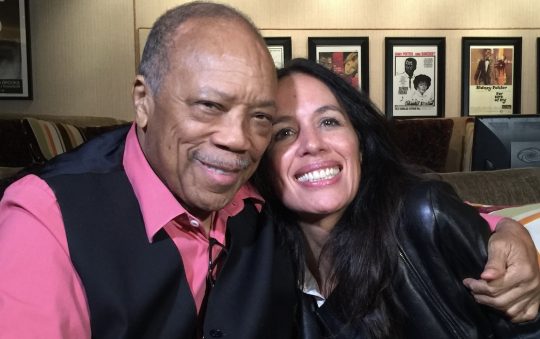In American Crime Story: The People vs. O.J. Simpson, Courtney B. Vance embodies the late Johnnie Cochran. The nine-part mini-series is the retelling of one of the most controversial cases in pop culture. Vance talks about how current events may be different if Cochran were alive today. With over three decades of experience in the entertainment industry, the Yale and Harvard trained thespian shares the importance of being fiscally responsible in-between gigs which alleviates the pressure of having to take every role that comes across his path. With his extensive filmography including “Fences” on Broadway to “Law & Order”, Vance gets candid about typecasting and the importance of knowing your worth.
LAS: How did you gauge the racial dynamics involved with the case?
CBV: I think we’re in the space that we’re in now because Johnnie isn’t here. He’s that one person who’s life was dedicated to these issues, he was able to cut his teeth on all of these types of cases; rich, poor, didn’t matter, all of the clients knew that when Johnnie spoke, black people, white people, news reporters, all media listened because he knew what he was talking about. Johnnie isn’t here in this landscape, so we’ve been suffering since. We don’t have him in this area where white folks and black folks aren’t speaking to each other. Our teenagers are being shot 16 times (referencing Laquan McDonald) Eight men hanging on somebody’s neck (referencing Eric Garner) that is unconscionable, but it still happens. All of us are accountable, not just police. We’re not blameless, things are happening in the black community that don’t need to be happening. We used to police ourselves but that’s not happening.
LAS: How did you prepare for this role?
CBV: I made the decision not to look at too much footage because that would have taken me into imitating. When you’re blessed to be chosen to portray such a legendary role like Tina Turner, Nelson Mandela or Ray Charles, you have to decide what you’re going to do. He’s an amazing iconic figure, I decided to just read everything. I knew if I read, I would be able to find and catch his spirit. Once I got the spirit of Johnnie Cochran, I knew everything that came out of my mouth would be right. I didn’t needed to be perfect, I just needed the spirit of him and with the other tools, hair make up and wardrobe the audience would enter in the script and into the world, I’d get out of the way and the story would be told.
LAS: Do you think that you’ve been overlooked for awards and acclaim? How important is it that you and other actors of color choose progressive and empowering roles?
CBV: You have to make a living, if you don’t have any buzz, you can’t be choosey, you can’t turn down things when you don’t have a plethora of opportunity and you need to pay the bills. I was blessed when Lloyd Richards, master director, teacher administrator at Yale School of Drama, he tapped me to be a part of a regional production of “Fences”. After that, film opportunities began presenting themselves but I definitely saved my money because there’s time where don’t nobody want you. I was told I couldn’t play Nigga Jim in “Huckleberry Fin” because I went to Harvard and Yale so I have to go in and prove I’m black. Once I’ve done that, now I can’t play a lawyer and I have to prove myself worthy of playing a lawyer once I do that there’s still another obstacle after that. It’s a constant journey while the whole time we have to make sure that we save our money so that we can choose to not do the drug dealer roles, but someone is going to do it. And that may be the role for them but that role may not necessarily be for me. We’re [Angela Bassett and I] are blessed because sometimes wonderful things come to us but there may be a 7 or 8 year hiatus before it happens again and we still have to live and be who we are.
We can’t second guess ourselves that just because we aren’t ‘wanted’. I may be ‘too this’ or ‘too that’ but I’m still wonderful whether I’m working or not. That’s what I try to instil within younger actors in process of working. You may have to wait for the right role even though we live in a society where no one wants to wait, we want everything immediately. A lot of young aspiring actors say, ‘can you help me? Can you do this for me?’ No, I’m not doing this for you because it handicaps you if I do everything for you. Now if I see you going out of your way to pay your dues, then we can sit down and I can make suggestions because I see that you’re already in the middle of it. Young people ask for my help and I say we can talk but I can’t do it for you because then you won’t learn the process nor will you appreciate the reward.
“American Crime Story” airs Tuesdays at 10p on FX.







